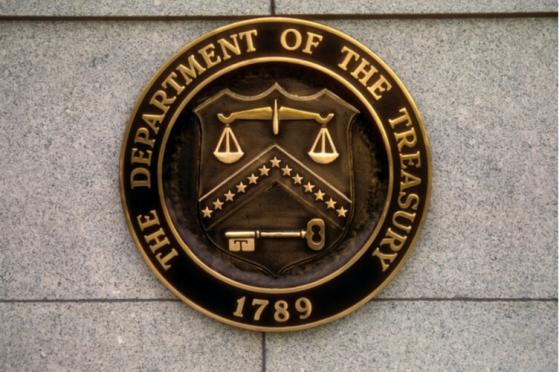The US Department of the Treasury has announced it might sanction cryptocurrency addresses in cases where officials find them associated with blacklisted individuals. On Monday, the department said in its guidance documents it would include crypto addresses in the sanctions list to inform the public about certain possessions linked to a blacklisted person.
The US Treasury will impose sanctions on criminals who use cryptocurrencies “as a complement to existing tools.” A spokesperson revealed that the department would identify cryptocurrency addresses through its regular sanctions-targeting procedures, which involve the application of law enforcement data, classified intelligence data, and publicly available information.
Dave Murray, who used to advise the undersecretary of Treasury for terrorism and financial intelligence, said that cryptocurrency addresses might be the most reliable identifiers for bad actors who operate in the dark recesses of the internet.
“Even though people will probably stop using an address once it has been listed, the addresses will be extremely valuable to financial institutions,” Murray said.
He added:
“They can use the addresses to build out the sanctioned person’s network and potentially identify the new address that a sanctioned person is using.”
The guidance document recommends that cryptocurrency exchanges and other companies working with digital currencies should create a risk-based compliance program since, as the department puts it, “there is no single compliance program or solution suitable for every circumstance.”
Cryptocurrency addresses represent codes made up of numbers and letters and act as a destination for a cryptocurrency transfer. Consisting of 26 to 35 alphanumeric characters, Bitcoin addresses are the most relevant given that the majority of big investors and potential bad actors operate with this cryptocurrency.
The move by the US Treasury comes amid the G20 meeting of finance ministers and central bankers, which is held this week in the capital of Argentina. It seems the participants might agree that cryptocurrencies cannot be classified as a form of money.
This article appeared first on Cryptovest
